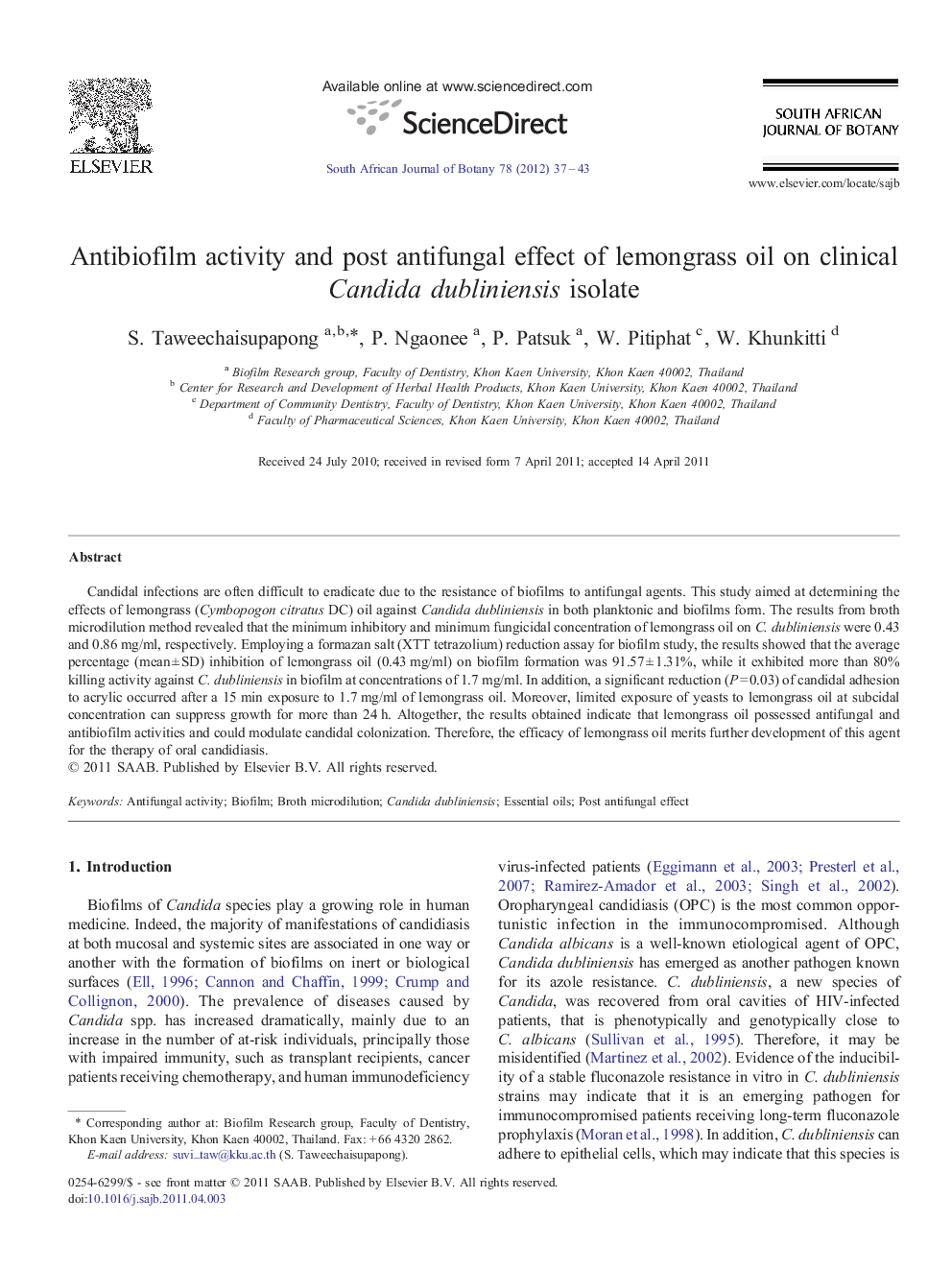| Article ID | Journal | Published Year | Pages | File Type |
|---|---|---|---|---|
| 4521040 | South African Journal of Botany | 2012 | 7 Pages |
Candidal infections are often difficult to eradicate due to the resistance of biofilms to antifungal agents. This study aimed at determining the effects of lemongrass (Cymbopogon citratus DC) oil against Candida dubliniensis in both planktonic and biofilms form. The results from broth microdilution method revealed that the minimum inhibitory and minimum fungicidal concentration of lemongrass oil on C. dubliniensis were 0.43 and 0.86 mg/ml, respectively. Employing a formazan salt (XTT tetrazolium) reduction assay for biofilm study, the results showed that the average percentage (mean ± SD) inhibition of lemongrass oil (0.43 mg/ml) on biofilm formation was 91.57 ± 1.31%, while it exhibited more than 80% killing activity against C. dubliniensis in biofilm at concentrations of 1.7 mg/ml. In addition, a significant reduction (P = 0.03) of candidal adhesion to acrylic occurred after a 15 min exposure to 1.7 mg/ml of lemongrass oil. Moreover, limited exposure of yeasts to lemongrass oil at subcidal concentration can suppress growth for more than 24 h. Altogether, the results obtained indicate that lemongrass oil possessed antifungal and antibiofilm activities and could modulate candidal colonization. Therefore, the efficacy of lemongrass oil merits further development of this agent for the therapy of oral candidiasis.
Research highlights► Lemongrass oil exhibited fungicidal activity on C. dubliniensis. ► Lemongrass oil possessed the strong inhibitory effect on Candida biofilm formation. ► Lemongrass oil can reduce the adhesion of the yeast to denture acrylic. ► The post antifungal effect of lemongrass oil on C. dubliniensis was more than 24 h.
